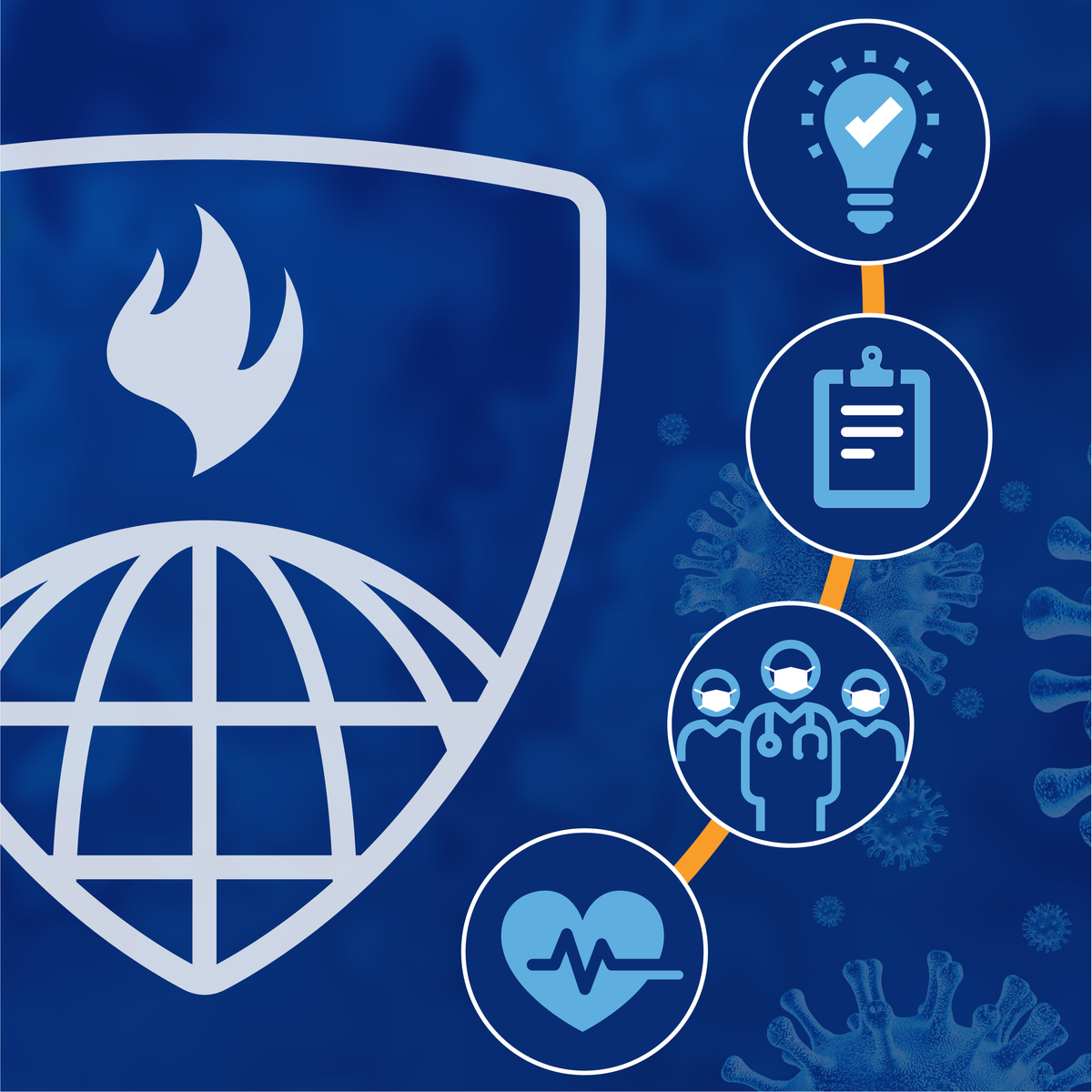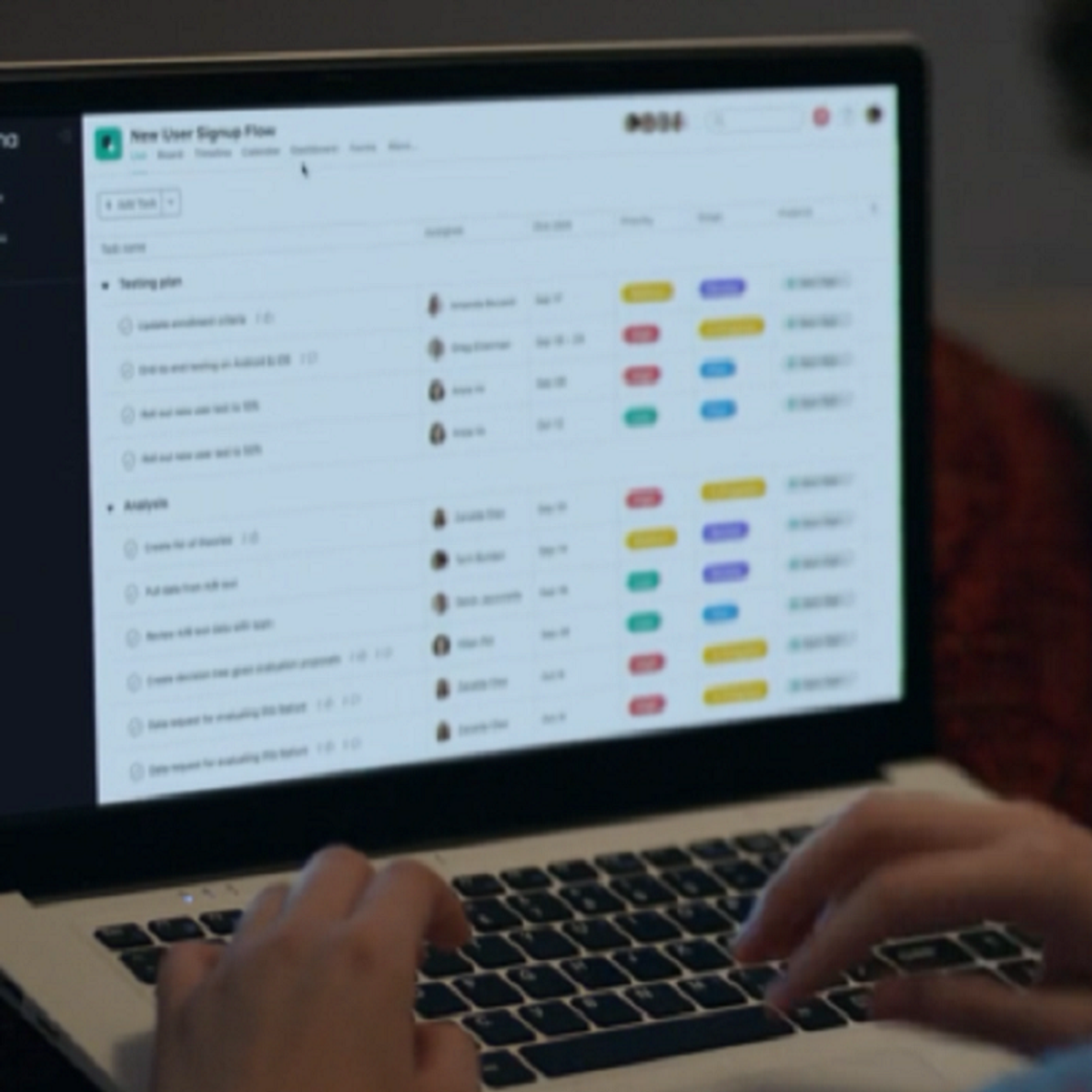Back to Courses









Leadership And Management Courses - Page 30
Showing results 291-300 of 600

Organize yourself as a remote worker or self-employed
In this 2 hour long project-based course, you will learn how to manage yourself as a remote employed worker or self-employed, with essential practices, tips and tools. You will create a browser work persona and set up tasks, time and productivity management tools, use online shared documents and video meetings, professional messaging, accounting and invoicing, and even relax and focus with meditation noise and productivity management techniques. The ultimate starting guide for remote and self work!
Note: This course works best for learners who are based in the North America region. We’re currently working on providing the same experience in other regions.

Project Initiation: Starting a Successful Project
This is the second course in the Google Project Management Certificate program. This course will show you how to set a project up for success in the first phase of the project life cycle: the project initiation phase. In exploring the key components of this phase, you’ll learn how to define and manage project goals, deliverables, scope, and success criteria. You’ll discover how to use tools and templates like stakeholder analysis grids and project charters to help you set project expectations and communicate roles and responsibilities. Current Google project managers will continue to instruct and provide you with hands-on approaches for accomplishing these tasks while showing you the best project management tools and resources for the job at hand.
Learners who complete this program should be equipped to apply for introductory-level jobs as project managers. No previous experience is necessary.
By the end of this course, you will be able to:
- Understand the significance of the project initiation phase of the project life cycle.
- Describe the key components of the project initiation phase.
- Determine a project’s benefits and costs.
- Define and create measurable project goals and deliverables.
- Define project scope and differentiate among tasks that are in-scope and out-of-scope.
- Understand how to manage scope creep to avoid impacting project goals.
- Define and measure a project’s success criteria.
- Complete a stakeholder analysis and explain its significance.
- Utilize RACI charts to define and communicate project team member responsibilities.
- Understand the key components of project charters and develop a project charter for project initiation.
- Evaluate various project management tools to meet project needs.
Applying Data Analytics in Finance
This course introduces an overview of financial analytics. You will learn why, when, and how to apply financial analytics in real-world situations. You will explore techniques to analyze time series data and how to evaluate the risk-reward trade off expounded in modern portfolio theory. While most of the focus will be on the prices, returns, and risk of corporate stocks, the analytical techniques can be leverages in other domains. Finally, a short introduction to algorithmic trading concludes the course.
After completing this course, you should be able to understand time series data, create forecasts, and determine the efficacy of the estimates. Also, you will be able to create a portfolio of assets using actual stock price data while optimizing risk and reward. Understanding financial data is an important skill as an analyst, manager, or consultant.

Strategies for Assisted Living Communities during COVID-19
SARS-CoV-2, the virus that causes COVID-19, poses a high risk for assisted living communities due to residents’ age, health status, and communal living environment. The COVID-19 response has largely focused on nursing homes, leaving assisted living communities in the United States with fragmented guidance on how to respond to COVID-19 challenges. This course provides comprehensive instruction and resources for administrators and direct-care staff of assisted living communities.
Learners will hear from experts about best practices to prevent COVID-19 outbreaks and promote well-being. Topics discussed include development of emergency preparedness plans, infection and outbreak prevention, staffing considerations, testing, and contact tracing. The course also covers strategies for communicating with stakeholders, promoting resident and staff well-being, and leveraging health departments and other agency resources, including a collection of resources for COVID-19 vaccination guidance. Learners are encouraged to concurrently develop and enhance their own community’s policies, procedures, and practices.
This course was developed in partnership with the Baltimore City Health Department.

Designing and Implementing Your Coaching Strategy
In order to be an effective manager in increasingly fast-paced and complex organizational environments, coaching skills to develop and get the best work out of employees has become essential. Throughout the Coaching Skills for Managers specialization, we’ve discussed many topics for improving coaching conversations with our employees. It is now time to put all of that theory and discussion into practice as you solidify your coaching philosophy, develop your coaching practice and agendas, and demonstrate mastery at handling everyday coaching conversations!
Please take note that this course builds upon all previous courses in the Coaching Skills for Managers specialization. While not required, it is highly recommended that students complete or be familiar with the topics covered in those courses before taking this course in order to be most prepared for the assignments in this course.
You will use the leadership point of view developed in Course 1 to articulate your coaching philosophy, and produce clearly defined expectations for people on your team, as well as Key Performance Indicators you will use to evaluate performance, building on your work from Course 2. You will use the techniques learned in Courses 3 to prepare for and practice coaching conversations, and use what you have learned to provide feedback to your other colleagues in this project-based course.
By the end of this project-based course, you will have developed and refined your entire coaching strategy to roll out with your team. Specifically, you will be able to define your coaching philosophy and explain it to someone else, develop a tailored coaching practice along with coaching agendas for your team in alignment with your organization's goals, and have an effective and productive coaching conversation with those you supervise.

Engineering Project Management: Risk, Quality, Teams, and Procurement
Many Project Managers focus only on the scope, schedule and budget. However, a successful project requires that you manage risk, control the quality of the deliverables, engage and manage people and procure goods and services. This course will focus on these key support functions that make the difference between a highly successful project and an average one. During the course, you will prepare a Qualitative Risk Analysis and Evaluate the Cost of Quality for a provided Case Study.
By the end of this course you will be able to:
• Identify positive and negative risks
• Develop risk strategies
• Perform a qualitative risk analysis
• Identify cost contingencies and reserves
• Develop a quality plan
• Identify quality standards
• Utilize cause and effect tools
• Create a prioritization matrix
• Develop a team management plan that includes team development, identifying team members and clarifies roles and responsibilities
• Develop a procurement plan that includes contracts and incentives
All of this will position you to understand the more intangible aspects of project management to drive better overall performance.
Rice Center for Engineering Leadership is a Registered Education Provider through the Project Management Institute (PMI)®. Learners who complete this course on the Certificate track will be awarded 12 hours of Profession Development Units. These are recognized by PMI for continuing education or can be applied toward the 35 hours of education required for the Project Management Professional (PMP)® certification.
*PMI and PMP are registered marks of the Project Management Institute, Inc.

Leadership and organizational behavior
Leadership is everywhere. It is involved in nearly every social action, in some form. Many people who have the potential to be leaders do not realize it. Many who become leaders do not know how to manage those responsibilities.
Great leaders can inspire change; bad leaders can cripple their followers with stress and frustration. What differentiates these two is a clear vision, an effective plan, and knowledge of how people work.
In this class, you will learn the foundations of psychology at work, so that you can better understand others and guide them to shared goals. Along the way, you will answer these questions:
Why do you want to be a leader?
What kind of leader can you be?
How can you persuade and influence people?
How can you motivate and inspire people?
Whether you are a formal or informal leader.

Preparing to Manage Human Resources
One way or another, all employees are managed. But approaches to managing employees varying from employee-to-employee, job-to-job, manager-to-manager, organization-to-organization, and country-to-country. This course provides a foundation for developing your own approach to skillfully managing employees by illustrating alternative human resource management (HRM) strategies, introducing the importance of the legal context, and thinking about what motivates employees. This will then give you the factual and conceptual basis for developing specific, critical HRM skills in subsequent courses on hiring employees, managing performance, and rewarding employees. Don't know anything about HRM? That's OK! Leave this course with a new-found understanding of the range of options available for managing employees, a grasp of what makes workers tick, and the readiness to develop your own HRM skills.

Collegiate Esports and Career Planning
This course will be covering hot topics in the Esports industry. With Esports exploding in popularity over the last ten years, there are a lot of issues to discuss.
We will also be talking about collegiate Esports and career planning in order to understand all the different avenues and to examine the choices available for you as you pave your way through the Esports world. We will examine collegiate Esports, as that is generally the first step, but we will be covering general career planning too.

Improve Efficiency in Asana for Project Managers
In this course you will learn how to effectively use Asana as a project management tool in order to improve project efficiency. You will learn how to create, organize, and sort tasks as well as set up project details within Asana.
Note: This course works best for learners who are based in the North America region. We’re currently working on providing the same experience in other regions.
Popular Internships and Jobs by Categories
Browse
© 2024 BoostGrad | All rights reserved


